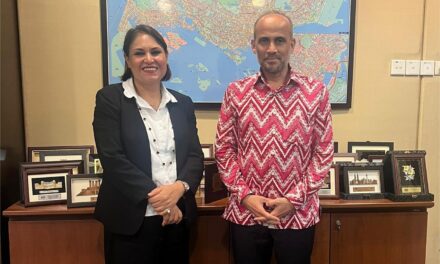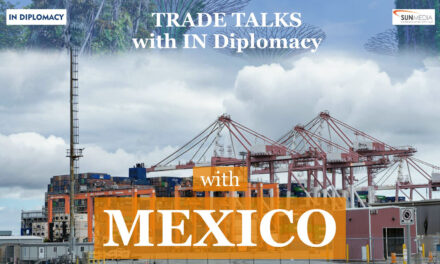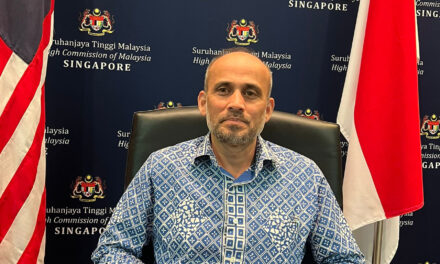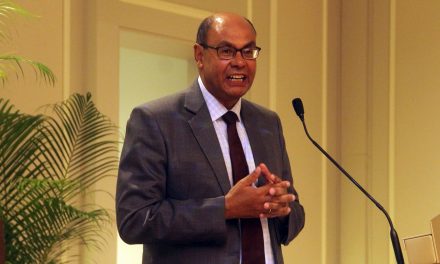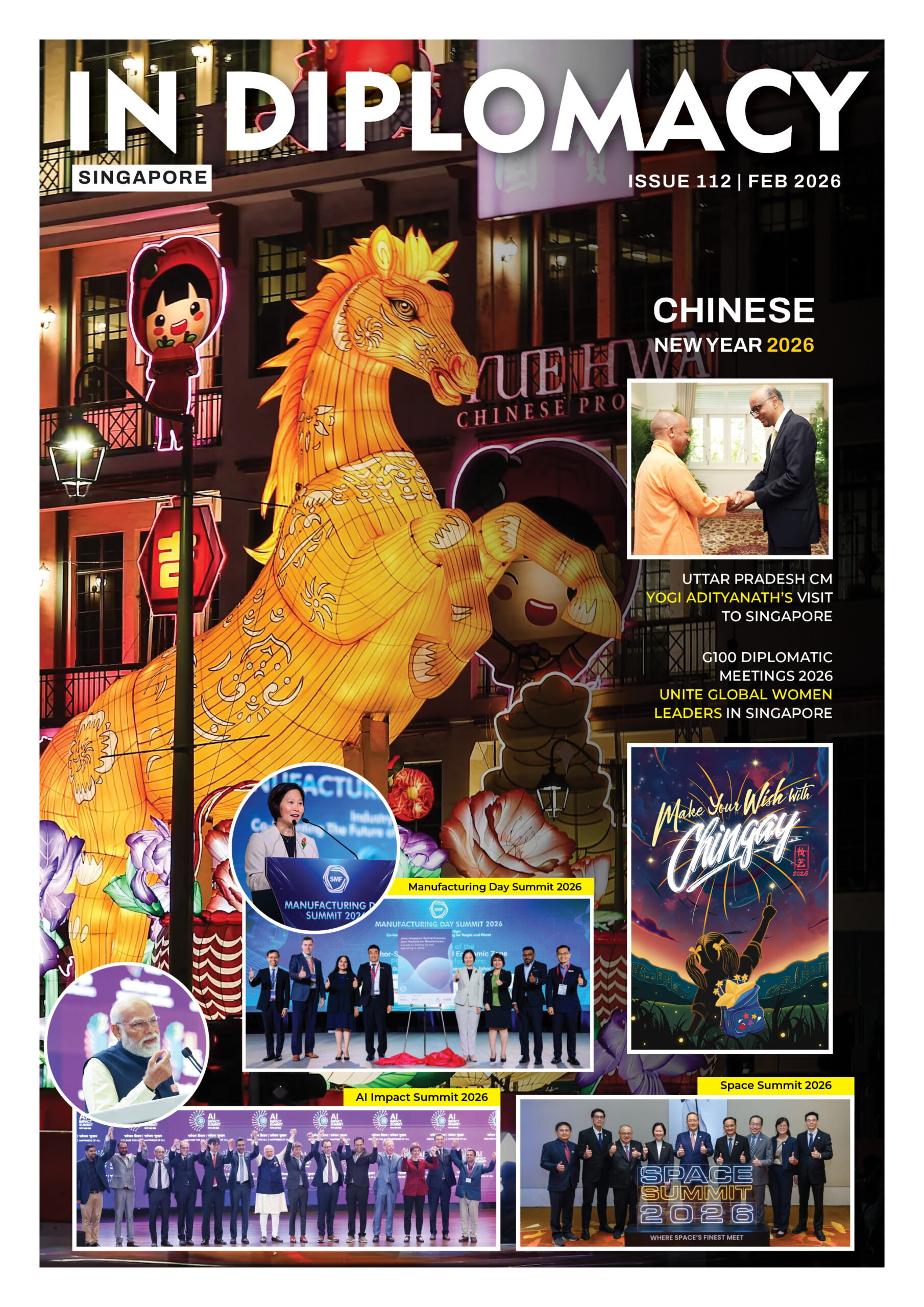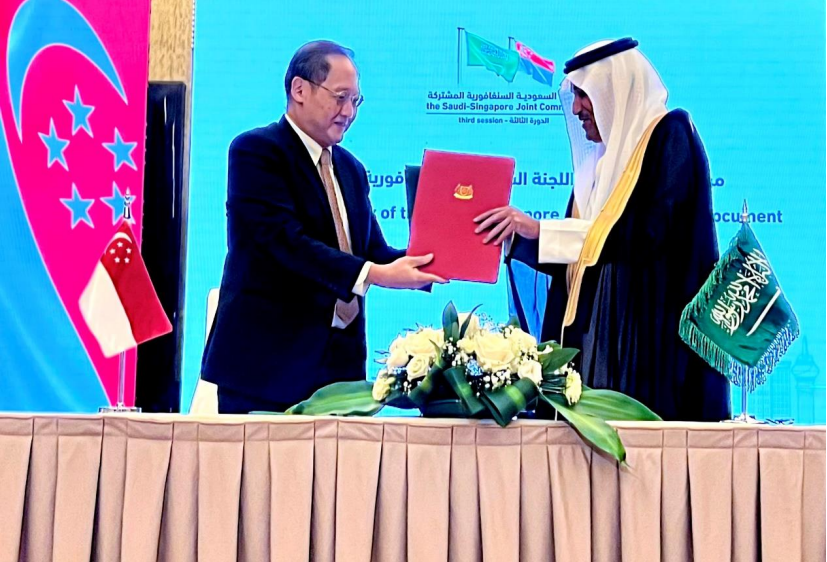
The Minister of Manpower and Second Minister for Trade and Industry shares with IN Diplomacy Publisher and Editor-in-Chief, Ms Nomita Dhar, examples of sectors that Singapore companies are making moves to do business in the Kingdom
Overall, how did you find your visit to Saudi Arabia? What were some of the highlights of your visit?
TSL: I had a fruitful visit to Saudi Arabia in October. One of the highlights from my visit was this year’s Saudi Arabia Singapore Joint Committee (SSJC), where Minister of Transport and Logistic Services Eng. Saleh bin Nasser Al Jasser and I reaffirmed our commitment to growing our countries’ bilateral ties, particularly in the areas of Connectivity, Energy and Industry.
On the Connectivity front, we witnessed the signing of an agreement between Saudi Global Ports (SGP) and Saudi Ports Authority (Mawani) to establish a one-million square metre integrated logistics zone at the King Abdulaziz Port in Dammam. The development of the integrated logistics zone is one of SGP’s partnerships with Mawani on its Vision 2030 roadmap to grow Saudi Arabia as a logistics hub.
On the Energy front, I was pleased that Minister of Energy Prince Abdulaziz Bin Salman and I signed the Energy Cooperation Roadmap. Through this, we will see closer cooperation in areas such as low-carbon solutions and technologies, renewable energy,
energy efficiency and innovation for decarbonisation. Prince Bin Salman and I also discussed our countries’ commitment to our energy transition.
I was also encouraged to see the level of private sector interest to invest and do business in Saudi Arabia. At this year’s SSJC, we were joined by representatives from the private sector from the Singapore Business Federation (SBF), Federation of Saudi Chambers (FSC) and a business delegation from Singapore. Five MOUs were also signed with the KSA Ministry of Investment to
facilitate their entry into Saudi Arabia in sectors such as education, transport and logistics. An MOU was also signed between the Islamic Religious Council of Singapore (MUIS) and Saudi Food and Drug Authority, which will allow for mutual recognition of halal certificates and collaboration in quality assurance of halal products. During my meeting with Saudi Minister of Investment Khalid Al Falih, I thanked His Excellency for the support that the Ministry of Investment has provided to our companies based in the Kingdom. Another highlight of my visit to Saudi Arabia was the opportunity I had to visit the beautiful and historical cities of Madinah and Al Ula, where we saw sites such as the Quba Mosque, which is believed to be the first mosque in the world. With the Kingdom’s aim to boost tourism in the country and to increase the number of travellers and pilgrims from Singapore to Saudi Arabia, I am confident that there is room for greater cooperation in these areas.
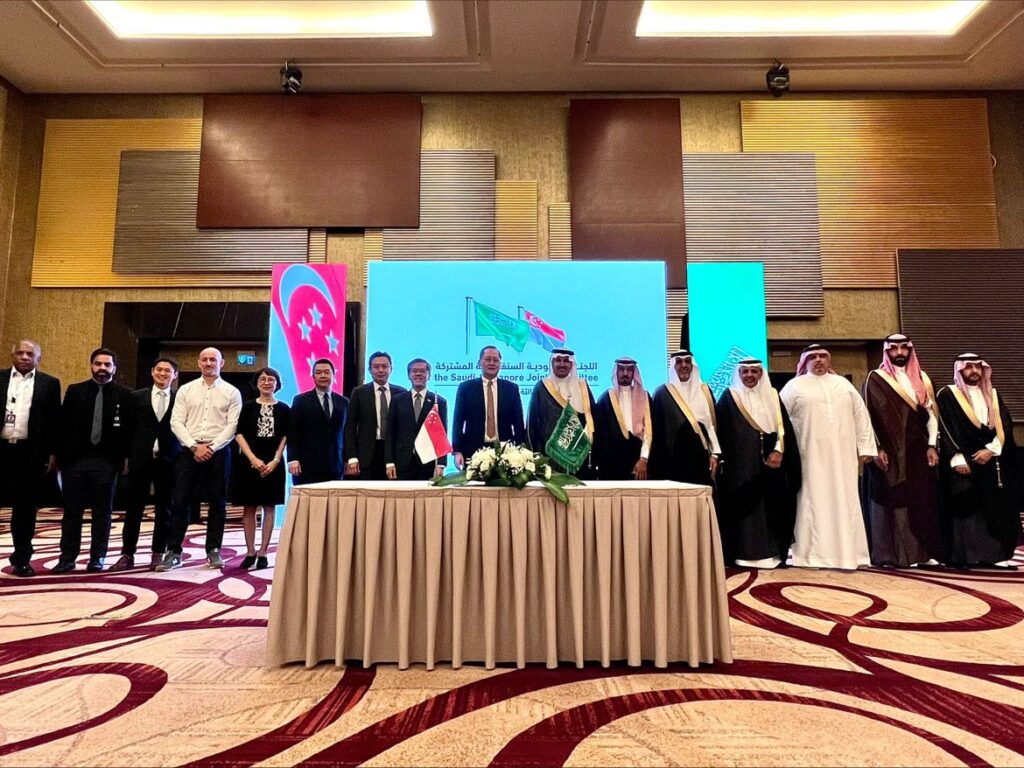
The members of the Saudi – Singapore Joint Committee
The rate and volume of trade growth between Singapore and Saudi Arabia is impressive. Are there key areas with business and investment opportunities between the countries?
TSL: In 2022, Saudi Arabia was Singapore’s second largest trading partner in the Middle East. Bilateral trade in goods between our countries was S$14.1 billion in 2022, which was an increase of about 50% year-on-year. There are many opportunities for our countries to grow trade and investment ties.
With Saudi Arabia’s Vision 2030, the country has seen new growth areas for Singapore businesses on many fronts, such as in logistics, transport and green energy. I had shared with His Excellency Al Jasser of Singapore’s interests to deepen our cooperation in the ports and logistics sectors and Singapore companies’ interest to participate in projects arising from Vision 2030.
“(Saudi Arabia) has seen new growth areas for Singapore businesses on many fronts, such as in logistics, transport and green energy. I had shared with H.E. Al Jasser of Singapore’s interests to deepen our cooperation in the ports and logistics sectors and Singapore companies’ interest to participate in projects arising from Vision 2030. Singapore companies are also interested to work together in the oil & gas, tourism and hospitality, urban infrastructure and education sectors”

